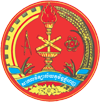Program Background
Cambodia supports a rich biodiversity yet is one of the least known countries worldwide. In addition to forming an important part of the Indo-Burma Hotspot, containing four Global Ecoregions and 40 Important Bird Areas, it possesses many of the best remaining forests and wetlands in mainland Southeast Asia, with countless endemic and globally threatened species. Though knowledge of Cambodian applied ecology and management remains limited, recent years have seen an astonishing rise in the number of species documented and other ecosystem within the country. Much of this research has been led by international ecologists/biologists, due to the chronic shortage of Cambodian research scientists. As a consequence, Cambodia’s current ability to manage its natural heritage is severely hampered both by a lack of skilled people and biological information.
Natural resources are the mainstay of Cambodia’s economy: more than 80% of Cambodians depend directly on natural resources for subsistence and income, and all utilize wild resources such as fish and timber. With pressures on ecosystems/biodiversity and the environment increasing, there is a risk of losing much of this natural wealth forever; to the detriment of present and future generations. As a result, the lack of national capacity and reliable biodiversity data has been highlighted in all recent priority-setting exercises, including the National Biodiversity Strategy and Action Plan (RGC, 2002).
Along side with the Masters of Science in Biodiversity Conservation, was established in 2005 to address the urgent need for qualified conservationists to guide Cambodia towards sustainable development, address existing knowledge gaps, and uphold the nation’s commitments to conserving its biodiversity, Doctor of Philosophy in Life Science, skill in Applied Ecology and Management, is developed to provide the need of Cambodian biological researchers and specialists to globally develop their knowledge and skills in biological life science. It is supported by Royal University of Phnom Penh mission to launch PhD program and CONSEA projects. Partner organisations assisting the Masters program include: Partner organizations assisting the Masters programme is mainly supported by European Project – Erasmus+ Program within the consortium of 4 European university partners: University of Toulouse (France), University of Girona (Spain), University of Ghent (Belgium) and University of Natural Resources and Life Sciences (Austria), and 4 South-East Asia university partners: University of Battambang (Cambodia), Can Tho University (Vietnam) and An Giang University (Vietnam). Centre for Biodiversity Conservation (CBC), that is currently running Master of Science in Biodiversity Conservation (CBC), Fauna and Flora International Cambodia (FFI) are the main collaborators for the program implementation.
Doctor of Philosophy in Life Science, skilled in Applied Ecology and Management, is research intensive and designed to prepare students for careers in academia, government, and industry as engaged scholars who are experts in their chosen field. Students must complete a minimum of 54 credits from a list of core and approved courses within their research section. They must involve in independent research that is novel and exciting culminating with a research thesis that makes an important contribution to their chosen field. More importantly, it is expected that their research work will be published in peer reviewed journals with the student listed as first author. Successful students are also trained and expected to develop as effective teachers and educators, and each student must serve as a teaching assistant for two semesters as part of the degree program.
The programme is designed to equip students with essential knowledge and transferable skills and experience required for successful careers in the rapidly-growing sustainable development and applied ecology and management sectors in Cambodia and SE-Asia.

Contact Info

Program Coordinator:
- Dr. Ith Saveng
- Programme manager
- Tel: (855) 12-507-492
- Mr. Kheam Sokha
- Programme coordinator
- Tel: (855) 92-299-474
- Mr. Phauk Sophany
- Programme coordinator
- Tel: (855) 16-941-231
- Address:Room 415, 4th Floor, Main Campus, Department of Biology, Faculty of Science, Royal University of Phnom Penh, Russian Federation Blvd., Touk Kork, Phnom Penh 12101 Cambodia
Student Life

Foreign students who are interested in studying in Cambodia should first approach their national government. read more...
